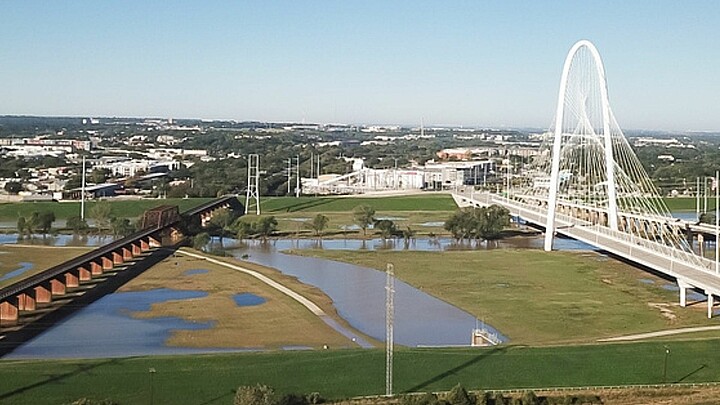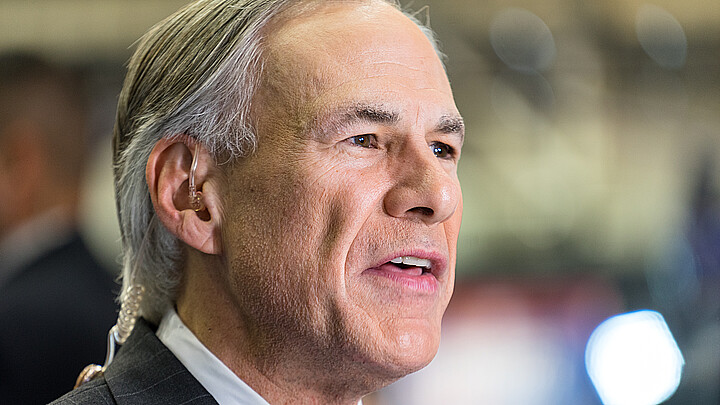Business
New $1.7 billion biorefinery coming to East Texas
February 16, 2022 12:38pm
Updated: February 17, 2022 6:13pm
Another company is building another multi-billion-dollar operation in Texas, this time in the deep East Texas piney woods of Bon Wier in Newton County.
Texas Renewable Funds, a subsidiary of the Scottsdale, Arizona-based renewable energy company USA BioEnergy, is building a $1.7 billion advanced biorefinery in Bon Wier. In exchange for an undisclosed amount of tax incentives it received, it’s expected to create 142 new jobs.
USA BioEnergy biorefineries specialize in the conversion of sustainably sourced wood waste into renewable diesel, sustainable aviation fuel, and naphtha, (a gasoline blend stock), using dependable, market-proven technologies.
The Newton County facility plans to convert one million green tons of wood waste into 34 million gallons annually of premium clean burning transportation fuel, including Sustainable Aviation Fuel, Renewable Diesel, and Renewable Naphtha. It also plans to expand its operations, which it projects will double the biorefinary’s capacity to 68 million gallons annually.
The biorefinery design “features carbon capture technology to prevent green-house gas emissions from contributing to CO2 levels in the atmosphere,” USA BioEnergy says. “It’s cleaner burning, ultra-low sulphur ecologically friendly renewable fuels, reduce emissions by 80% compared to traditional fossil fuels.”
An industry partner is building a pipeline to transport its CO2 for secure permanent geologic storage deep underground, it says. It’s also secured offtake agreements from one of the nation’s largest truck stop companies, and with the world’s pre-eminent airlines for all of the fuel it produces.
The biorefinery’s “demand for thinnings and wood waste will infuse the forestry industry in the Southeast Texas region with stable long-term revenue,” the company said. It will also capture and sequester approximately 50 million metric tons of CO2 over its operational lifetime, which will give Texas Renewable Fuels “one of the lowest Carbon Intensity scores in the industry,” it says.
Newton County was chosen after “USA BioEnergy performed an extensive site search and analysis to identify the best location for our project," Nick Andrews, its CEO, said. "State and local incentives then became the key component of our decision and we’re excited to select Bon Wier.” This included “state and federal credits and tax incentives created to incentivize development and offset the cost of renewable fuels.” The amounts, and how long they will receive them, weren’t disclosed.
Newton County Judge Kenneth Weeks said the project will “support an estimated $1.2 billion in gross area product or economic activity during construction.” This includes “an estimated 585 direct construction and related workers jobs during construction with $877 million in direct revenues for construction related companies,” he says, which “will bring substantial improvement in the quality of life for the residents of Newton County.”
Newton Independent School District Superintendent Michelle Barrow said that the project benefited from Chapter 313 of the Texas Tax Code, a controversial measure that’s supposed to expire by the end of the year.
"Newton ISD participated in a Chapter 313 incentive, which temporarily limits a property’s appraised value to encourage business investments within school district borders,” she said. “The project will bring industry to the Newton area, an enhancement towards the education of our youth and the quality of life of our current and future workforce."
House Speaker Dade Phelan, R-Beaumont, at a Texas Oil and Gas Association event in San Antonio last week, said plans were in the works to “replace Chapter 313, a crucial incentive program to attract businesses to Texas.”
But long considered by Republicans and Democrats as Texas’ largest corporate tax break, it allows school districts to offer substantial tax breaks for 10 years to renewable energy and other businesses, including wind factories. The school districts don’t directly “feel” the hefty financial losses because taxpayers subsidize the difference through sales and other state-collected taxes, the Texas Public Policy Foundation argues, meaning taxpayers pay far more over time, reducing the value of their earnings.
The Texas Legislative Budget Board estimated the cost of extending Chapter 313 would cost another $9.6 billion in “local school district revenue losses” between 2023 and 2049.
A 2017 study found that between 85% and 95% of the Chapter 313 projects evaluated would have located in Texas without the incentive.
Abbott maintains the incentives will help the biorefinery “further cement Texas as an innovative energy leader and will bring unprecedented economic opportunities to Bon Weir and Newton County.”










